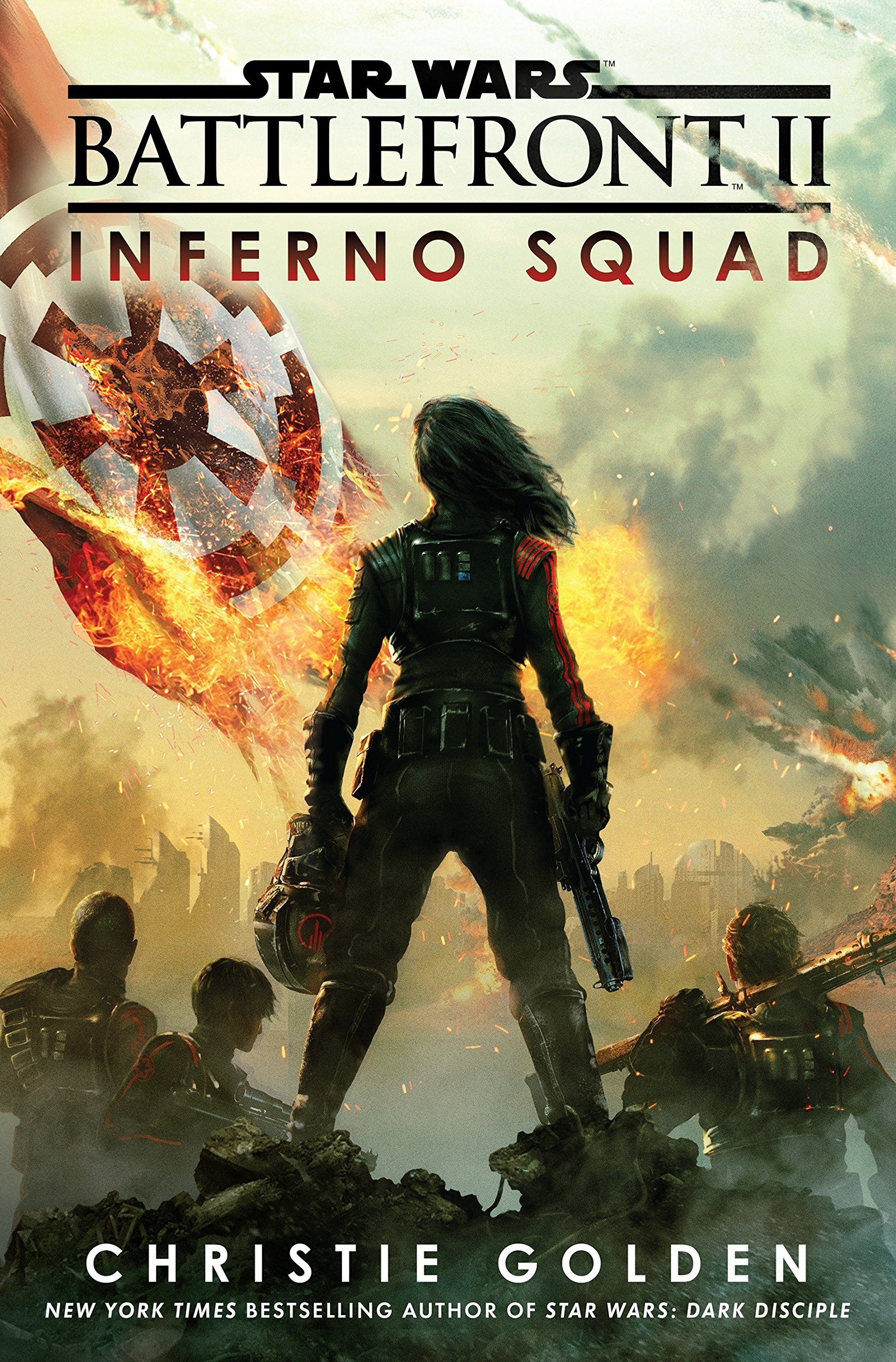By: Christian Corah
Descriptives
Page count: Paperback, 463
Author: Alexander Freed
Timeline: Follows A New Hope, precedes Empire Strikes Back
Main character: Hazram Namir
Brief synopsis: Despite the destruction of the Death Star, Twilight Company remains caught up in a devastating war with the unyielding Imperial war-machine
Gut Feeling
I was pretty excited when I started reading this book. Even though it was a book written for a video game, I’d heard that it was really good. Some even said that it was one of the best Star Wars books out there, which is saying a lot! Also, who doesn’t love a good war story? Being set in the Star Wars universe, I was expecting to thoroughly enjoy this book. But, now that I have finished it, I didn’t love the majority of the book. Early on, the war scenes were really cool. It felt as if I was reading through a playthrough of Rainbow Six Siege. Really cool! But as the book continued on, I felt that I had to force myself to keep reading. The book is rather long, and I think that the story could have been told in many less pages. However, the ending was well told. It was the highest quality section of the book, which is saying a lot, because I think ending a story is the hardest part to tell. But overall, I still think I was disappointed with Battlefront, Twilight Company. But that is also my biased opinion, let's get into the actual content of the book for the scored review.
Characters (9/10 pts)
Characters were, by far, the strongest component of the book. While Namir was the main character, the book followed perspectives of various different characters. The time devoted to these characters was not too much, where it would take away from Namir’s story, and it was enough to supplement the main story from a different point of view. I thought all of the character arcs, in addition to Namir’s, were well told and all added something significant to the story. Now, back to Namir, he was an especially interesting character. While I do wish that more of an emotional attachment was formed for him, that doesn’t mean that you won’t feel strongly attached to his character. Besides that, I found his character very interesting. It was something that I didn’t exactly suspect from the book’s main character, but I welcomed his character’s unique qualities. Alongside Namir, Governor Chalis and members of the Twilight Company were all developed well and had their own depth. Having so many strong characters in a book is difficult to do, but Battlefront: Twilight Company delivered. That is why they score so high, with 9 points, in this section.
Writing Style (7.75/10 pts)
No Star Wars book is poorly written. Del Rey does an excellent job at only selecting established authors to write their stories. While Battlefront: Twilight Company was well written, I do think it is slightly below average when compared to other Star Wars novels. Freed uses much detail throughout the entire book, which is not necessarily a bad thing, but I think the impact of the details could have been told with fewer words. It seemed to take me out of the story multiple times. He also fits a lot of details into each sentence: too much in my opinion. This makes the sentence structure more complex than it should be. I believe that simpler is better when conveying ideas. Finally, and this may be a stylistic choice, when presenting a list of three or more items, Freed did not use commas to separate the items. Instead, he used “or” or “and” between every single item. Grammatically, this is incorrect, but it could have been a choice he made to fit the theme of the novel (something similar was done with Cormac McCarthy’s The Road). I don’t think the choice paid off, but I’m not taking away points for that because you may feel differently. The writing style didn’t hurt the quality of the book at all, but it didn’t significantly add to it either. For the reasons presented previously, I am giving 7.75 points for the writing style.
Plot (7.5/10 pts)
It’s really difficult for me to rate a novel when the ending of the book seems so differing in quality from the rest. For most of the book, I was expecting to rate the plot very low. However, the ending of the book was very good. It was exciting, brought all of the characters together, and successfully applied closure to the story. It was also done at a pace that I thought was neither too slow nor too fast, it was just right. So even though, for the most part, I did not love the plot, it did leave a good taste in my mouth at the end. However, I can’t deny that I felt this plot was pretty slow paced. I think there were events and details in the book that could have been cut out to no expense to the overall story. This would have quickened the pace and made the read more exciting. It was also somewhat difficult to know where the book was headed. At some points I thought I knew, but I was never certain. I don’t want to know exactly what is going to happen, but I want to know the direction when reading a book. However, alongside the ending, the best part of the plot was the differing perspectives that the story was told from. While there were storylines separate from Namir’s, they did not significantly add to the length of the book, which was a plus. The time was spent well. So there is obviously a lot to discuss considering this book’s plot. There’s a lot of negatives and positives. Overall, I am settling with a score that is slightly below average: 7.5 points.
Intrigue (6.5/10 pts)
Intrigue is where the weaknesses of the plot hit the hardest. While seeing the story from multiple characters’ perspectives is good for the plot, it hurts the intrigue. This is because I have to learn the backgrounds of multiple different characters, which does take some time for Freed to do. Eventually I welcomed these new characters, but, at first, I just wanted to get back to Namir’s story. Also, because the plot moved so slow, I felt that I could read a couple chapters and still not know much more about the story. Adding this to the overall direction of the plot being somewhat unclear, it took me much longer to read this book than I expected. However, when the book was good, it was very good. It’s peaks in intrigue resulted in Freed’s highest quality writing and caused me to not want to put the book down. But these moments did not occur enough in this novel. Considering it was a story about war, I expected it to have much more intrigue. That is why I am only giving 6.5 points for the intrigue.
What does it add? (6/10 pts)
Battlefront: Twilight Company didn’t add much to the Star Wars universe. There were only two things that I can think of. First, we have new perspectives on good and evil in the war. It is not as black and white as we think it is. We like to think the Rebels can do no bad and the Empire can do no good, but that isn’t always true. However, Lost Stars by Claudia Gray did this much better. Regardless, this book still added to the conversation that not everyone involved in the Imperial war-machine was evil. Second, we got a look into what the war was actually like. Seeing that this was essentially the sole purpose of the novel, I do not give major points for this addition. So I am only awarding 6 points for what this book added.
Logic (0 pts)
There was nothing in Battlefront: Twilight Company that either adds to or takes away from the logic within the Star Wars universe. Because of that, I am neither adding nor taking away extra points.
Final Thoughts
So my final grade for Battlefront: Twilight Company is a 7.35/10 or moderate to low C. This falls in the lower echelon of the novels that I have reviewed. I felt disappointed by the majority of it, but it did have some high quality parts in it. If you have a large interest for war novels, you will probably like this book more than I did. But if you are just a Star Wars fan looking for good stories within the universe, I don’t think this one is a must read.
I hope you enjoyed this book review and if there is a book that you want me to read or review, please let me know at christiancorah@gmail.com. As for now, I will only be doing Canon books (but in the future that might change).






